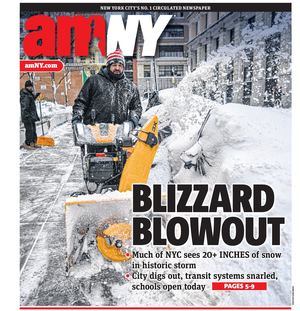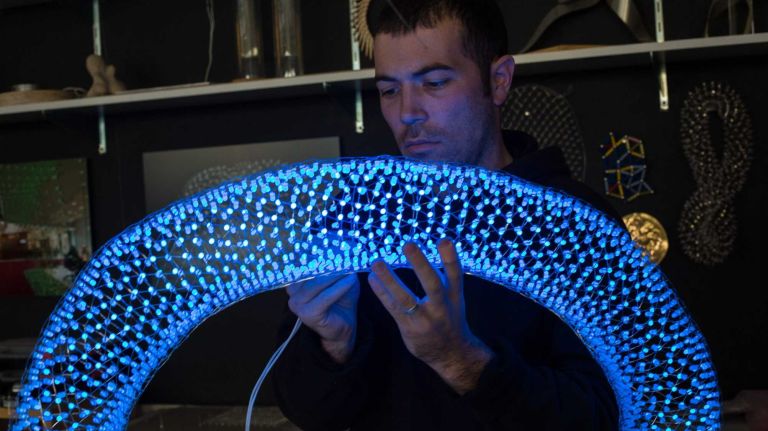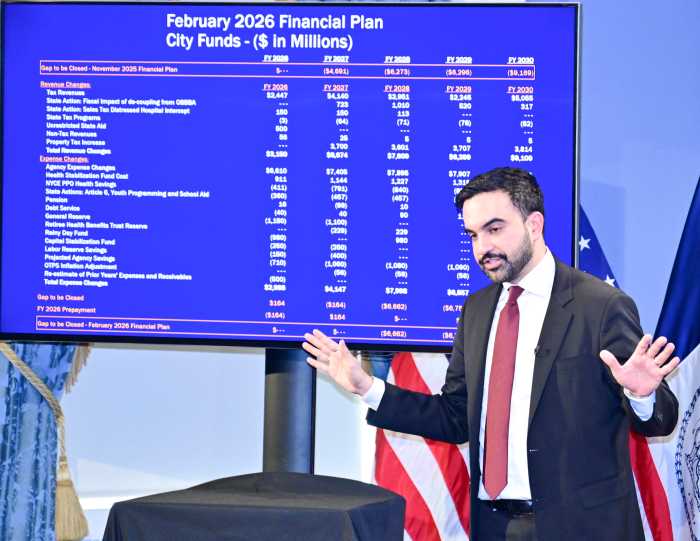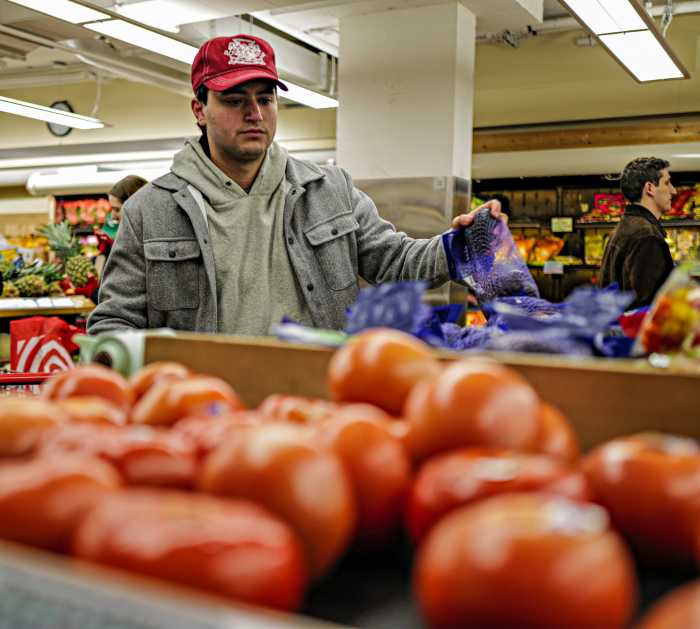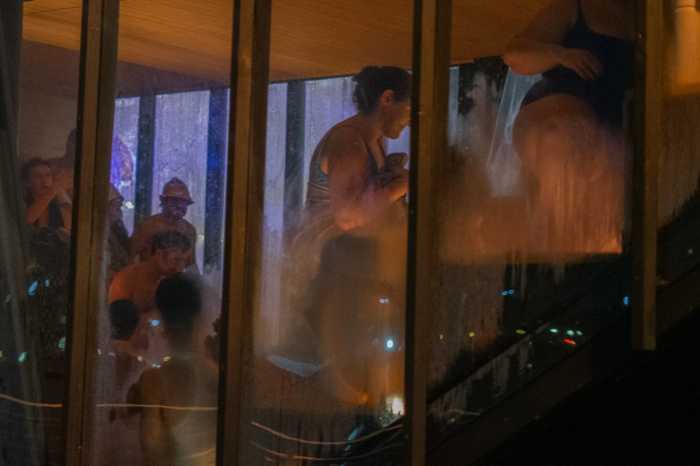
There’s growing evidence that the future of the city’s tech economy is being manufactured in Downtown Brooklyn.
Companies and entrepreneurs are flocking to the Brooklyn Tech Triangle — an area encompassing the Brooklyn Navy Yard, DUMBO and Downtown Brooklyn — where they are finding active support from a like-minded community and investors.
These are companies like established darlings MakerBot, the 3-D printer maker; and Etsy, the online craft shopping site; as well as dozens of up-and-coming businesses working in everything from digital media to manufacturing.
A 2012 study commissioned by the triangle’s stake holders found that local companies had a $3 billion impact on the economy and had created more than 9,600 jobs. The study also counted 523 tech and creative firms that have made the triangle home, either starting up there or moving operations there.
Even with all the momentum, though, there’s a sense that the full potential of the triangle is being throttled by limited transportation and an almost total lack of vacant space.
“Much more work needs to be done on the transportation front,” said Alexandria Sica, executive director of the DUMBO Business Improvement District. “We can easily get to and from Manhattan, but getting around Brooklyn continues to be a challenge.”
Tucker Reed, the executive director of the Downtown Brooklyn Partnership, said the real challenge may be accommodating all the new businesses that want to open up shop in the triangle.
“We’re basically out of space,” he said.
Despite those obstacles, there is plenty of buzz and opportunity in the business community that is drawing the attention of policymakers and developers.
The city and state are investing in new infrastructure, parks, and transportation. Just this summer, Mayor Bill de Blasio’s administration announced it would work with the Downtown Brooklyn Partnership to redevelop a 21-acre space between Borough Hall and Brooklyn Bridge Park known as the Brooklyn Strand.
Meanwhile, developers are planning new construction that promises to add both residential and commercial space.
City Point is rising in Downtown Brooklyn, promising to bring 1.8 million square feet of retail, residential and office space. In DUMBO, DUMBO Heights will encompass five buildings and serve tech start-ups, galleries and residents. The Navy Yard is renovating a U-shaped building that will house cutting edge manufacturers in 260,000 square feet of space.
And community is being created through Hackathons, meet-ups, training sessions and new tech incubators that are helping to cross-pollinate ideas and spur innovation.
When it comes to transportation, there may be some novel solutions in the years ahead, such as bringing back trolleys. More immediately, a public bus now connects all three points. Bike share also has eased the transportation crunch.
“I don’t think that’s proved to be a real barrier so much as a psychological barrier,” David Ehrenberg, the executive director of the Brooklyn Navy Yard, said of the transportation situation.
A more immediate challenge, perhaps, is that with vacancy rates in all three points at almost zero, companies are struggling to expand.
“If we could double our space at the snap of our fingers, I think we would,” said Erica Rosen, the director of marketing for BioLite, a DUMBO-based business that builds “off-grid energy products.” “I think we’d love to grow, and not grow out of the Tech Triangle.”
BioLite
BioLite, based in DUMBO, is a start-up founded in 2009 by Alexander Drummond and Jonathan Cedar, both avid outdoorsmen who were frustrated by having to lug bulky gas canisters with them on camping trips.
Product designers by day and tinkerers on the weekend, they came up with patented technology that converts heat from a fire into usable electricity that improves overall combustion. One core product targeted at campers, the BioLite wood-burning CampStove, combines a portable cookstove with a USB port for charging devices. The company says it has sold hundreds of thousands of products to date.
While they initially aimed to target recreational users for their stoves, the founders were surprised to find another market in the developing world where scores die annually because they are forced to use dangerous open pits to cook their meals.
“It’s astonishing to think that cooking dinner is one of the most dangerous activities for nearly half of the planet,” Cedar wrote in an email. “The same families that are the world’s fastest growing market of cellphone users are still cooking over smoky open fires.”
The 33-person company now has three active pilot programs that distribute their HomeStove in India, Ghana and Uganda, which could potentially save lives.
New Lab
Robotic furniture that appears to float. Futuristic motorcycles. Baby spoons.
To get a glance at the future of prototyping, look no further than the New Lab at the Brooklyn Navy Yard.
Described by co-founder Scott Cohen as a “multidisciplinary technology center,” the lab operates as a base for startups, tinkerers and skunkworks by established companies working in robotics, industrial design, architecture and biotech.
Currently operating out of an 8,000-square foot “beta space,” members share an approximately $400,000 3-D printer, a machine shop and other facilities.
“I think the key is making prototyping and making production part of the design process instead of making it somewhere else,” Cohen said. There are currently 13 companies working at the lab.
The New Lab expects to open its doors to 40 or 50 more companies when it moves to an 84,000-square foot space at the Yard’s new Green Manufacturing Center, a 250,000-square-foot facility currently under construction.
BlocPower
Startup BlocPower, located in Downtown Brooklyn, works to finance solar and energy efficiency projects in urban areas. The company has worked with churches and community organizations to retrofit buildings and purchase and install solar panels and new boilers.
The goal is to reduce energy use by 30 to 40%, said founder Donnel Baird. Those energy savings mean real money for these groups.
“In the middle of winter, you have to heat up the whole church,” Baird said. “That can be super-duper expensive, particularly if your church is 100 years old.”
BlocPower is housed at the Urban Future Lab, which moved this past March to the MetroTech Center. The lab touts itself as the city’s premier “cleantech” and “resiliency” incubator. There are currently 17 companies located there. Baird said being in the Tech Triangle gives his budding company access to a larger like-minded tech community.
“We exchange ideas, we partner, we talk to customers together,” he said.
